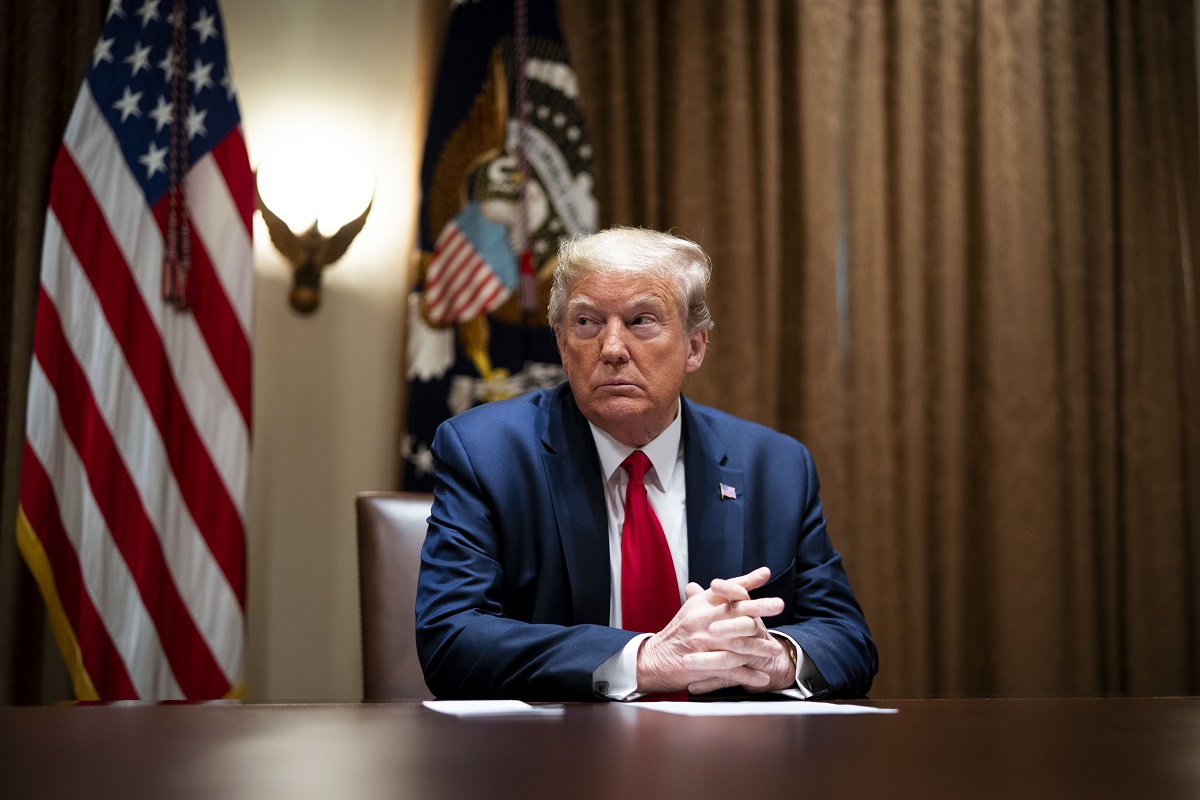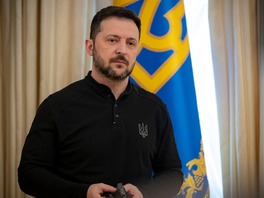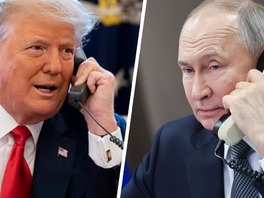On April 16, Rudy Giuliani’s Ukrainian associate Andrii Telizhenko made a head-turning statement: President Trump was ready to join the Normandy peace format and give Ukraine a billion dollars – or even more – if Ukraine started a Biden investigation. Casually discussing the Burisma controversy in his weekly interview with the little-known Svobodnyi channel, Telizhenko seemingly missed the seriousness of his claims. While key impeachment inquiry witnesses confirmed the alleged quid pro quo in Congress – Burisma and 2016 investigations for a White House meeting – Trump’s quest for “favors” appears to have gone far beyond Zelensky’s visit to New York.
Back to where it started...
Up until the scandalous July 25th phone call, Ukraine’s neophyte president had been successfully extricating himself from the Trump-Giuliani-Biden power play, which served as Mr. Zelensky’s first serious international challenge.
The so-called Ukrainegate saga continuously pressured Volodymyr Zelensky – a novice in politics – to remain, in essence, Switzerland between American political opponents, all the while securing the U.S. bipartisan support for his state. With the armed conflict in the country’s east, America’s full and unwavering support is imperative in Ukraine’s ongoing struggle against Russia.
Everything changed when the whistleblower filed a complaint, focusing on multiple “troubling” events and Trump’s scandalous conversation with his Ukrainian counterpart. While Trump dismissed the call as purely casual and appropriate, the exchange included a myriad of concerning moments and a clear power dynamic. In his semi-subtle manner, Trump both hinted at the lack of reciprocity in U.S.-Ukraine relations and asked Zelensky for a “favor” – to follow through with Burisma and 2016 investigations.
“There was an official request from the President of the United States of America for a joint investigation on Biden and Biden’s corruption in Ukraine. It was an official request, not a personal one,” Andrii Telizhenko, introduced as Trump’s preferable candidate for the position of Ukraine’s ambassador to the U.S., affirmed.
According to Telizhenko, it was the Ukrainian side that first leaked assertions of potential illegal pressure. In particular, then-Secretary of the National Security and Defense Council Oleksandr Danylyuk had supposedly informed Eric Ciaramella and Lt. Col. Vindman of his concerns – sooner rather than later, the story made it to all global headlines.
 Andrii Telizhenko
Andrii Telizhenko
Although Mr. Danylyuk’s connection to the Ukrainegate saga is not confirmed, the timeline surrounding his dismissal is rather curious. Danylyuk used to play an active role in Zelensky’s communications with the U.S. Two weeks prior to the consequential phone call, he met with the foreign policy hawk John Bolton, former United States Special Representative for Ukraine Negotiations Kurt Volker, and National Security Advisor to the Vice President Keith Kellogg during a United States visit.
Then, in late August 2019, Bolton traveled to Kyiv, where he discussed national security matters with Danylyuk.
Despite his chief national security advisor’s contact with Americans, Zelensky didn’t take Danilyuk as part of the delegation to the U.S. On September 27, two days after the presidents met in New York, both Kurt Volker and Oleksandr Danilyuk resigned. John Bolton, who described Giuliani as “a hand grenade” about to “blow everyone up", resigned on September 10.
In light of the emerged scandal and Ukraine’s possible role in its leakage, Trump was rather hesitant to meet with President Zelensky. Telizhenko and Giuliani, however, have played their parts well. According to the former, the duo convinced the White House to follow through with the meeting. Their argument was quite compelling: there was a chance Zelensky could go for a Biden investigation. Former New York mayor’s meeting with Andrii Yermak – Zelensky’s then-top aide and current chief of staff – had added an extra layer of persuasiveness to their account. Giuliani has been actively accusing the Biden family of corruption, with his story finding its roots in Ukraine. As a follow-up to Trump’s conversation with Zelensky, he traveled to the Spanish capital of Madrid to discuss potential investigations with Yermak, who led Ukraine’s back-door communications with America at the time.
That’s exactly how Mr. Telizhenko learned of Trump’s willingness to join the Normandy format and give Ukraine at least a billion dollars in cash if the conflict-torn country started a Biden probe. “I can say that late last year Donald Trump was ready-- if Ukraine started the investigation… Trump was ready to negotiate with Mr. Zelensky – up to joining the Normandy format. I don’t know why the President’s Office did not use this opportunity. Up to receiving anywhere from a billion dollars of financial, cash aid from the U.S. Not like the IMF guarantees or other abstract funds. Cash. We lost this opportunity,” Telizhenko concluded in the interview.
 Joe Biden
Joe Biden
If true, Telizhenko’s account adds an entirely new dimension to the Ukrainegate story. Or, more specifically, a brand new quid pro quo. While key impeachment inquiry witnesses confirmed the Burisma and 2016 investigations for a White House meeting quid pro quo, Trump’s pursuit of dirt on Biden led him to another attempted trade-off. As the exchange described by Telizhenko wasn’t conditioned on a White House visit – and the withheld military aid had already been released by that point – it’s an intriguing new development to Trump’s alleged obstruction of justice.
It's worth noting that Mr. Telizhenko refused to expand on the details of his story. When asked if he was personally present during the Normandy format-and-a-billion-for-Biden-investigation conversation, the former diplomat retaliated. "I confirm everything I’ve stated before, but I’m not going to dive deeper into your question," he told Apostrophe during his new Svobodnyi broadcast.
Soon after, Mr. Telizhenko utilized his political hero's favorite tactics – accusing the media of corruption. "Stop writing paid articles," the man responded upon hearing another question. As Apostrophe inquired what was Andriy Telizhenko's motivation behind, practically, describing a previously unknown quid pro quo, he added, "This information is for Mr. Zelensky and others in the government – if they see this broadcast – to understand what happened back in the fall of 2019."
"It [Trump's willingness to join the Normandy format and offer Ukraine a billion dollars] wasn’t announced, and it wasn’t told to Mr. Zelensky," Telizenko said, prompting the audience to stop looking for "sabotage". Interestingly, in his previous interview a week ago, Giuliani's Ukrainian associate claimed he "didn't know why the President's Office didn't use this [opportunity]". It is only natural that one has to know of something to exploit it, assuming Mr. Telizhenko's story is based on true events.
Nevertheless, including Andriy Telizhenko's friendship with Mayor Rudy and his open fondness of President Trump, the diplomat's decision to talk about something this sensitive does strike as odd. According to Apostrophe's source that wished to remain anonymous, Telizhenko's speech was largely driven by his desire to draw attention to his persona. As we were informed, the White House received a curious report proving Giuliani's "ultimate witness" unreliable. As a result, the man was no longer trusted with an important role of attacking the Biden family in Congress, which pushed him to show his importance in Svobodnyi's Ukrainian studio.
Ukraine’s pressure point
It’s worth noting that playing the Normandy format card is striking below the belt, effectively hitting Ukraine’s most sensitive pressure point – the country’s desire for peace and security. With over 13,000 casualties in the Donbas, Ukraine’s actions are largely dictated by its desire for conflict settlement, as well as for international support in the continuing struggle against Russia. Zelensky, in turn, was elected – with historic 73% of the vote – as a president that could finally bring peace and tranquility to the conflict-torn state.
As part of his initiatives to move past a dead-end, Zelensky voiced a proposal to include the United States and the U.K. in the Normandy group on negotiations, consisting of representatives of Ukraine, Germany, France, and Russia.
For Ukraine, the worst-case scenario would be betting on a specific U.S. candidate and losing. Not only would Ukraine be accused of interfering in another country’s domestic affairs, but it would also lose a significant portion of American support – which is integral in light of Ukraine’s clashes with Russia-backed separatists. While pressuring a foreign state to undermine one’s political opponent is never acceptable, utilizing an armed conflict as leverage is taking it decidedly too far.
Apostrophe will be updating this article upon receiving additional answers from the story's key figurants.
Last updated on April 23, 11:15 p.m.





